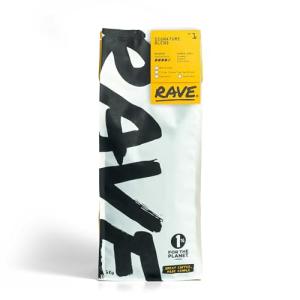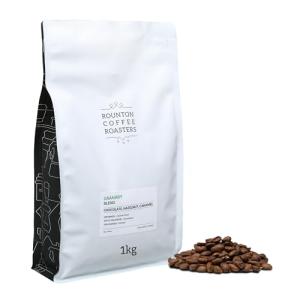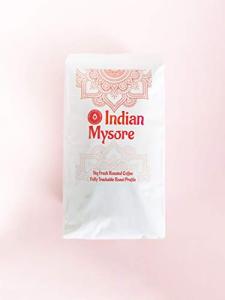In recent years, the coffee industry has witnessed an increasing shift towards sustainable practices, prompting roasters and consumers alike to seek out climate-friendly options. One noteworthy entrant in this sector is the Brazil Misty Small Batch Climate Positive Coffee. Emphasizing quality, sustainability, and community, this coffee represents a step forward in the quest for a more responsible coffee consumption model. This guide delves into the unique attributes of this coffee, the processes behind its production, and its broader environmental implications.
The Essence of Brazil Misty: A Small Batch Approach
Brazil is renowned globally for its coffee production, with vast plantations spread across the country's various regions, each contributing unique characteristics to the beans. The Brazil Misty Small Batch Climate Positive Coffee is no exception. This coffee is carefully sourced from select smallholder farms, ensuring high quality and distinct flavor profiles while supporting local communities.
Characteristics
-
Flavor Profile: Brazil Misty boasts a rich flavor profile marked by nutty undertones, hints of chocolate, and a pleasant sweetness. These characteristics arise from the coffee's specific cultivation and processing methods, which enhance the beans’ natural qualities.
-
Sourcing: The coffee is harvested from farms practicing sustainable agriculture. These smallholder farms often use traditional farming methods that have minimal environmental impact but yield high-quality beans.
-
Climate Positive: A standout feature of the Brazil Misty coffee is its climate-positive certification. This means that for every kilogram produced, measurable actions are taken to offset carbon emissions. This shift is vital considering the coffee industry's significant contribution to climate change through deforestation and carbon emissions associated with production and transportation.
The Sustainable Journey: From Farm to Cup
The journey of Brazil Misty coffee is not only about flavor, but also about social responsibility and environmental stewardship. Understanding this journey is essential to appreciating the product fully.
1. Sourcing and Ethical Farming
-
Direct Trade Practices: The coffee is purchased directly from farmers, ensuring they receive fair wages. This model fosters a direct relationship between growers and roasters, allowing producers to invest in their communities while maintaining quality.
-
Organic Farming Techniques: Many of the farms utilize organic farming methods, avoiding toxic pesticides and fertilizers. As a result, the ecosystem remains intact, promoting biodiversity.
2. Processing Techniques
-
Natural Processing: Brazilian coffee often undergoes natural or semi-dried processes, which accentuate its fruity and sweet characteristics. This method reduces water usage, making it more environmentally friendly.
-
Quality Control: Small batch production allows for meticulous quality control, ensuring that only the best beans make it to packaging. Each batch is roasted to perfection, allowing for flavor changes that highlight specific notes inherent to the beans.
3. Eco-Friendly Packaging
The packaging of Brazil Misty coffee reflects an ongoing commitment to sustainability. The coffee is packaged in compostable materials, reducing plastic waste and promoting a circular economy.
Benefits of Climate Positive Coffee
Choosing climate-positive coffee like Brazil Misty provides various benefits, not only for the consumers who enjoy the flavors but also for the environment and communities involved.
-
Environmental Benefits: By supporting small-scale farmers who adopt sustainable practices, consumers actively contribute to reducing deforestation, improving soil health, and fostering biodiversity in coffee-growing regions.
-
Supporting Local Communities: The direct trade model ensures that the financial benefits of coffee production remain with the growers, enabling them to invest in their farms, families, and the surrounding community.
-
Enhanced Flavor: Often, sustainably grown coffee exhibits a richer flavor due to careful cultivation practices. By prioritizing quality over quantity, small batch coffee offers a unique flavor experience.
FAQs About Brazil Misty Small Batch Climate Positive Coffee
What does climate-positive coffee mean?
Climate-positive coffee refers to coffee produced with practices that not only mitigate greenhouse gas emissions but also actively reduce carbon levels. This is achieved through reforestation, sustainable farming, and renewable energy practices.
How does small batch coffee differ from mass-produced coffee?
Small batch coffee is produced in limited quantities, often prioritizing quality over quantity. This process allows for improved oversight and individualized attention to the beans, resulting in a better flavor profile compared to mass-produced varieties.
Is Brazil Misty coffee organic?
Many of the farms that contribute to Brazil Misty Small Batch Climate Positive Coffee practice organic farming methods, but certification may vary. It's essential to check the product packaging or descriptions to confirm organic status.
How should I prepare Brazil Misty coffee for best results?
To fully appreciate the flavor complexities of Brazil Misty coffee, consider using a pour-over or French press method. These brewing techniques allow for optimal extraction, highlighting the coffee's nuanced flavors.
Where can I buy Brazil Misty Small Batch Climate Positive Coffee?
Brazil Misty coffee can typically be found at specialty coffee shops, select grocery stores with a focus on sustainable products, or online through the brand’s website and various coffee retailers.
As consumers become increasingly aware of the environmental and ethical implications of their coffee choices, products like Brazil Misty Small Batch Climate Positive Coffee rise to meet this demand. With its commitment to quality, environmental sustainability, and support for local communities, this coffee represents not just a beverage but a lifestyle choice. For those who value both flavor and impact, Brazil Misty offers a delightful cup with a conscience.






